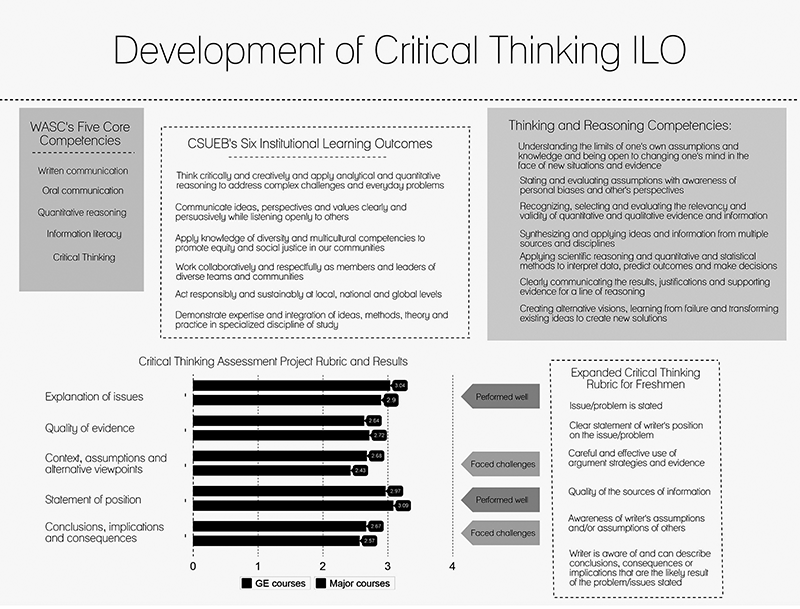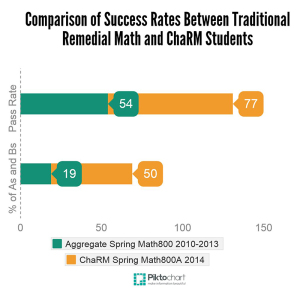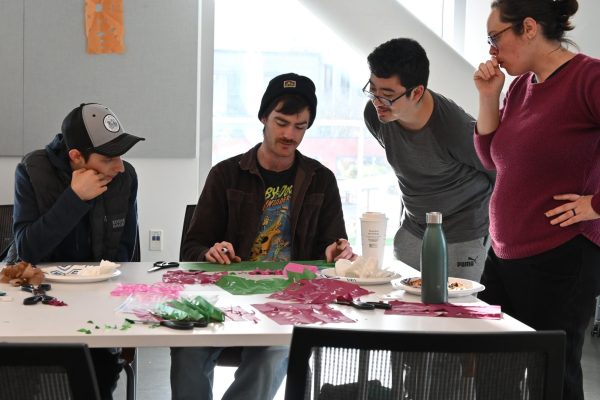Upcoming accreditation propels university’s assessment reforms
With the increased national attention on accountability in higher education, California State University, East Bay is continuing to refine and develop an assessment structure for the university’s Institutional Learning Outcomes in preparation for the upcoming accreditation reviews.
Students receive a syllabus at the beginning of every course outlining what they are supposed to know by the time the quarter is finished. Currently the school is in the process of determining how to assess whether or not students are really learning those things.
Student Learning Outcomes are listed in every syllabus, which are to be assessed by the instructor, but these SLOs have to tie into the larger institutional goals for student education.
The university’s six Institutional Learning Outcomes define what every graduate of CSUEB get out of his or her experience at the school, such as the abilities to think critically and work with others.
During the last academic year, the Critical Thinking Assessment Project, ILO Subcommittee and General Education Subcommittee began the process of designing and piloting university-wide rubrics to measure the skills and abilities outlined in the university’s ILOs, beginning with critical thinking.
Lower-division and upper-division student essays in classes with a critical thinking component were evaluated to identify patterns and student learning needs, starting with 44 student essays from Philosophy 1000 in summer 2013.
Entering students’ work indicated strengths in stating their own positions well and acknowledging at least one conflicting claim, but showed difficulties in establishing the credibility of sources, developing their ideas, providing context, describing relationships and conclusions, and finding a focus, according to the CSUEB accreditation self-study.
Upper-division essays were assessed in fall 2013 and winter 2014 and illustrated that graduating students could explain issues and state their positions well, but had challenges with discussing context, assumptions, alternative points of view, conclusions, implications and consequences.
Participating faculty expressed that the rubric provided consistency in terms of grading, but was too inflexible to apply to all critical thinking assignments across departments, according to the Blackboard Outcomes Learning Assessment Evaluation and Implementation Report.
The development and assessment of the ILOs is an important part of the accreditation process, which CSUEB is undergoing this year. Western Association of Schools and Colleges, the regional accrediting agency, has five core competencies that each university graduate is expected to possess, overlapping with the ILOs.
The assessment began with critical thinking because various CSUs decided to work together to develop an assessment structure for one core competency and decided that was one of the most important.
Faculty will continue to develop university-wide rubrics for the written communication and diversity and social justice ILOs during the upcoming academic year.
A long-term assessment plan, including the assessment of co-curricular activities, was developed in winter and spring 2014 and is scheduled for finalization during the upcoming year.









